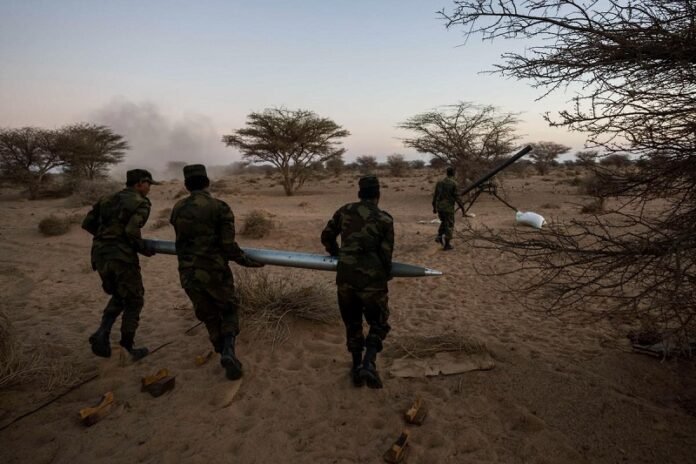The recent missile attack near a MINURSO base in the southern Moroccan city of Smara, claimed by the separatist Polisario Front, marks a dangerous violation of the ceasefire and a clear breach of international law. Although no casualties or property damage were reported, the incident reignites concerns over the group’s increasing alignment with transnational terrorist networks—particularly as U.S. lawmakers push to designate it a foreign terrorist organization.
A Calculated Move Amid Shifting Diplomacy
The timing is critical: The attack coincides with the tabling of a bipartisan U.S. bill by Representatives Joe Wilson (Republican) and Jimmy Panetta (Democrat), which seeks to officially label the Polisario as a foreign terrorist entity. This move, strategically timed with the attack, appears aimed at reshaping U.S. and international policy toward the Western Sahara conflict and its actors.
"The city of Smara was hit by rockets launched by the Polisario Front near a UN base.
No casualties were reported, but the attack raised concerns about growing risks in the region." pic.twitter.com/NiZhwZws21
— Diplomatique.ma الدبلوماسية (@diplomatique_ma) June 28, 2025
Iranian-Made Rockets on Moroccan Soil?
According to military analysts, the rockets used in the Smara attack appear to be Iranian-made Arash rockets—specifically the Arash LR model. These rockets have previously been employed by Iranian proxy groups like Hezbollah. Notably, Polisario militants have received training in Syria under Hezbollah supervision, raising serious concerns over a coordinated logistical and ideological nexus involving Algeria, Iran, and Lebanese factions.
The Canary Islands Tragedy: A Legacy of Terror
Long before recent developments, victims of Polisario violence have spoken out. In 2006, Lucia Jiménez, daughter of a fisherman from the Canary Islands killed by the group, founded the ACAVITE association for victims of terrorism. Her advocacy led to high-level recognition, including meetings with the King of Spain and the Prime Minister. The group continues to call for the Polisario to be listed as a terrorist organization.
Tindouf Camps: Refuge or Training Grounds?
Reports by international security institutions suggest that the Tindouf refugee camps in Algeria have become incubators for extremist training and recruitment. The camps host operatives connected to Sahel-based terrorist groups, further implicating the Polisario—and by extension, Algeria—in destabilizing regional security.
Morocco’s Measured Response: Restraint or Strategy?
Despite the provocation, Morocco chose to maintain its composure, reaffirming its commitment to international legality while continuing its development efforts in the southern provinces. This policy of “strategic restraint” seeks to expose the repeated errors of its adversaries while building diplomatic capital on the international stage.
Key Questions Raised
-
Has the Polisario now crossed the line into terrorism?
-
To what extent is Algeria complicit in harboring and arming such actors?
-
Do Iranian-Hezbollah-Polisario ties signal a broader threat in the Maghreb-Sahel region?
-
Can Morocco maintain a policy of restraint without compromising its security?
Conclusion: A Dangerous Shift in the Western Sahara Conflict
The Smara incident confirms a dangerous escalation. The conflict is no longer just territorial; it now raises transnational security concerns. The pressure is mounting on the UN Security Council and the international community to hold Algeria accountable and to recognize the Polisario as a threat to global peace. The stakes are no longer just diplomatic—they are geopolitical, legal, and humanitarian.




